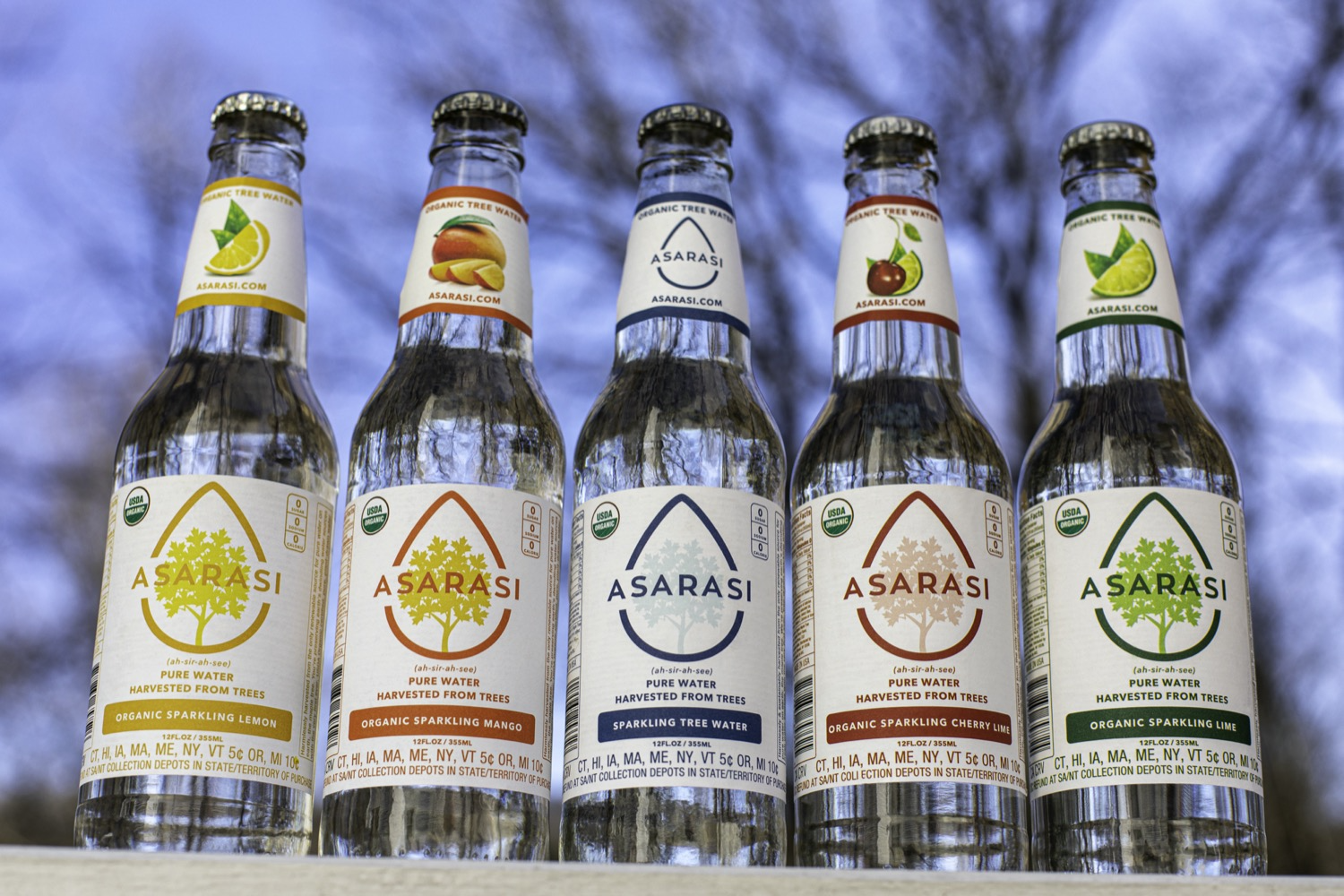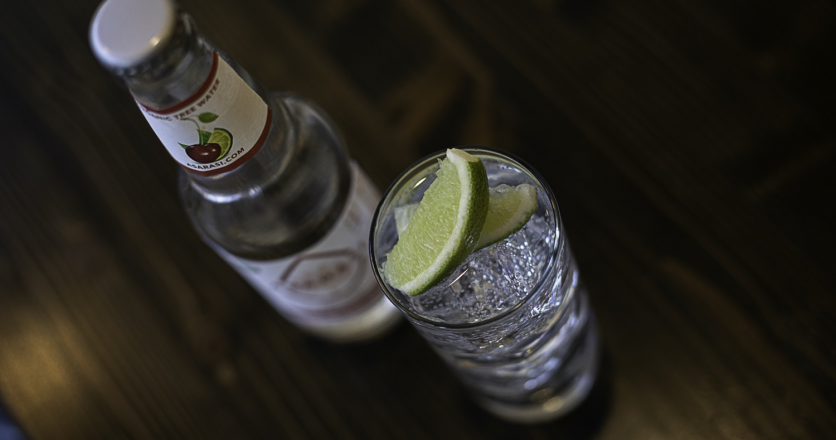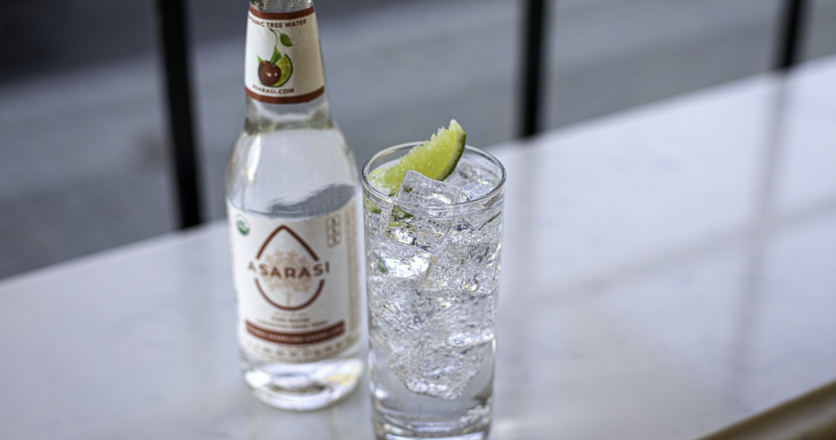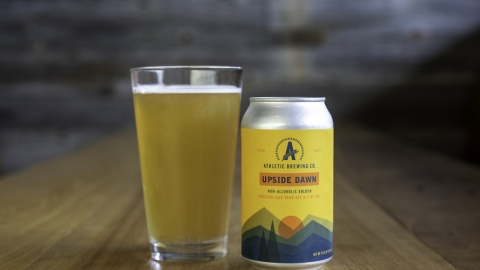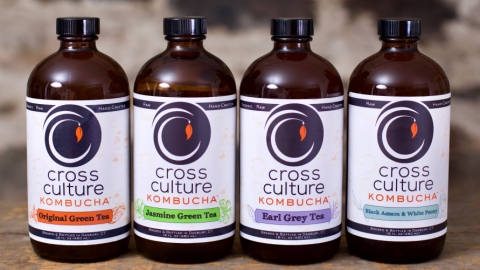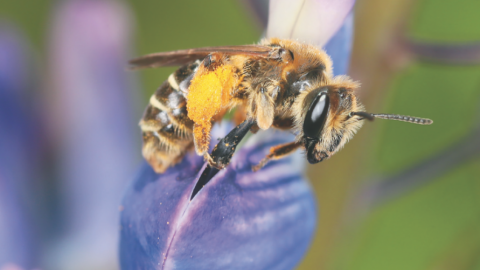Growing Water
It was a case of cabin fever that set the wheels in motion for Adam Lazar to stumble upon a unique business opportunity, when, in the winter of 2008, he awakened to another cold Saturday morning in his Vermont home. With an urge to get out of the house, he invited his young daughter to jump in the car and “go get lost.”
A few miles into their impromptu road trip, Lazar saw a sign for a nearby farm’s Maple Open House. It was syrup-harvesting season, and Lazar figured it would be a fun opportunity for his daughter to see how maple syrup is produced. Inside, they watched as the farmer proudly showed off his newly acquired piece of equipment: an imposingly large, reverse osmosis filtering machine that began the process of transforming maple tree sap into syrup.
As he watched the machine work, Lazar took note of a six-inch drainpipe, which was pouring out a tremendous volume of clear liquid. Inquiring as to what it was, the farmer responded simply, “It’s water.” At a rate of 12,000 gallons per hour, the constant flow of water captivated Lazar’s curiosity. “Maple sap is 97% water,” says Lazar. “Reverse osmosis technology captures all the sugar molecules – the remaining 3% – which is considered the ‘liquid gold.’ The rest is pure, filtered water, and it turns out that all that pristine water was simply discarded, as waste.”
Lazar realized that if he could build infrastructure to capture, store, and ship this water, he could create a unique product story with a highly sustainable value proposition. He estimated that upwards of a billion gallons of water was potentially available from maple syrup manufacturers. This water was already filtered and ready to be bottled. “If people were willing to pay for water shipped from Fiji, why wouldn’t they be willing to pay for water that was drawn organically from trees?” asks Lazar.
Lazar wrote a business plan shortly thereafter and incubated the idea for several years, until his father told him about a business competition run by 43 North out of Buffalo, New York. The annual competition attracts over 13,000 applicants who compete for substantial cash prizes and mentorship opportunities. Lazar submitted his business plan in 2014, finishing in the top 100 of all applicants. “I knew I was on to something by finishing in the top tier,” Lazar recalls. “I was all in at that point and laser focused on organizing the business.” In 2016, Lazar attempted his third shot at the 43 North competition and was rewarded a $500,000 prize. Soon afterwards, Connecticut Innovations invested in the business. Lazar finally had the capital necessary to move into production and launch Asarasi bottled water, the only known tree-drawn source for pure water on Earth.
“Asarasi” is Latin for “maple tree.” “The water comes from the roots of the tree,” Lazar says, “and Latin is the root of our language.” Asarasi water is the first and only USDA-certified organic water. All of its offerings are carbonated and include a natural, unflavored option in addition to four organically flavored varieties: Cherry Lime, Lime, Mango, and Lemon. Every detail of the Asarasi brand is evaluated through sustainable best practices, and all packaging is sourced from recycled materials; even the glue used to adhere the labels is non-toxic.
Four years since launching and operating the business out of Bridgewater, Connecticut, Asarasi water can be found in 42 states and as far away as Japan. The uniqueness of the product has turned a lot of heads and even caught the attention of large industry groups. “We were just accepted into Anheuser-Busch’s ‘100+ Accelerator’ program, which allows us to be a part of the Anheuser-Busch ecosystem,” Lazar says. “We’ll benefit by gaining access to their distribution and marketing channels, as well as many other resources. We’re really excited about it.”
While Asarasi is focused on bottled water today, the company sees itself chasing a bigger vision. “We’re not just selling bottled water. We’re promoting responsible consumption of natural resources,” says Lazar. “If there’s a food or beverage product out there that would benefit by utilizing tree-sourced water, we’ll evaluate if there is a business model that makes sense.” Asarasi currently has contracts with 110 family farms, and there are many more to tap into to continue building its sustainable supply chain. “When I first met with that farmer in Vermont, my motivation wasn’t to make a lot of money,” recalls Lazar. “It was to figure out how to help these farmers capture more value from their existing maple crops and help improve their financial stability.”
Once-skeptical farmers, who thought Lazar was crazy for wanting to purchase their unwanted water, now understand the overall potential and benefits of partnering with Asarasi. More importantly, beverage consumers are increasingly intrigued by its sustainable product story, not to mention its crisp, refreshing taste. As the world’s supply of fresh, clean drinking water faces intensifying pollution threats, look to Asarasi to lead the way with a sustainable solution that quenches everyone’s thirst for a healthier planet.


